Syria war: Attacks fuel search for solution
- Published
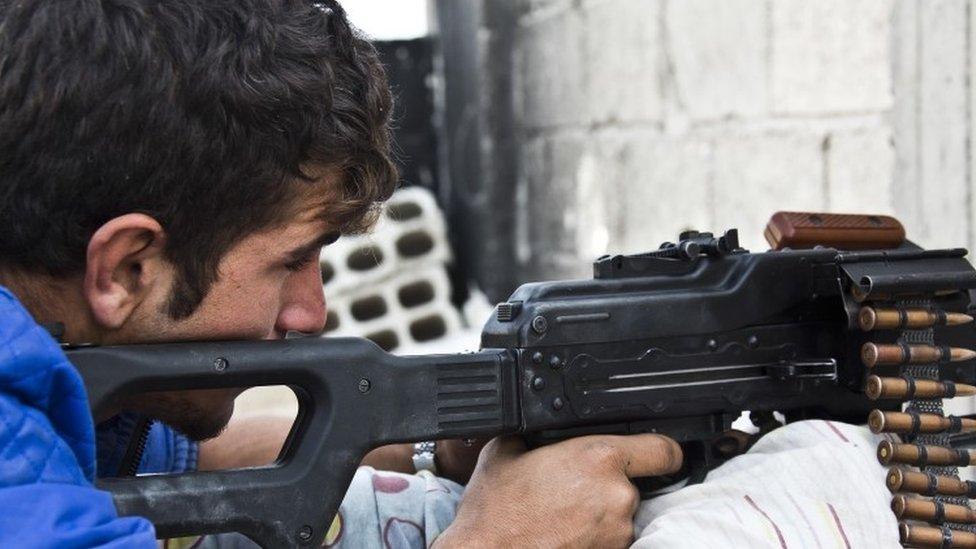
While the Syrian war intensifies, so too do diplomatic efforts to achieve an end to the conflict
With American and Russian jets ranging through Syrian skies seeking targets to strike, an airliner exploding over Sinai, regional and western capitals threatened or actually hit by co-ordinated multiple attacks, the Syrian crisis and its ramifications have never looked more dangerous.
But the latest multiple developments are why a solution to the conflict is now closer than it has ever has been.
Which does not mean it is close, or that it will happen.
But with the crisis dominating the concerns of world leaders from Washington through Europe to Moscow and beyond, settlement efforts have taken on an urgency and seriousness unseen since Syria began erupting into violence in March 2011.
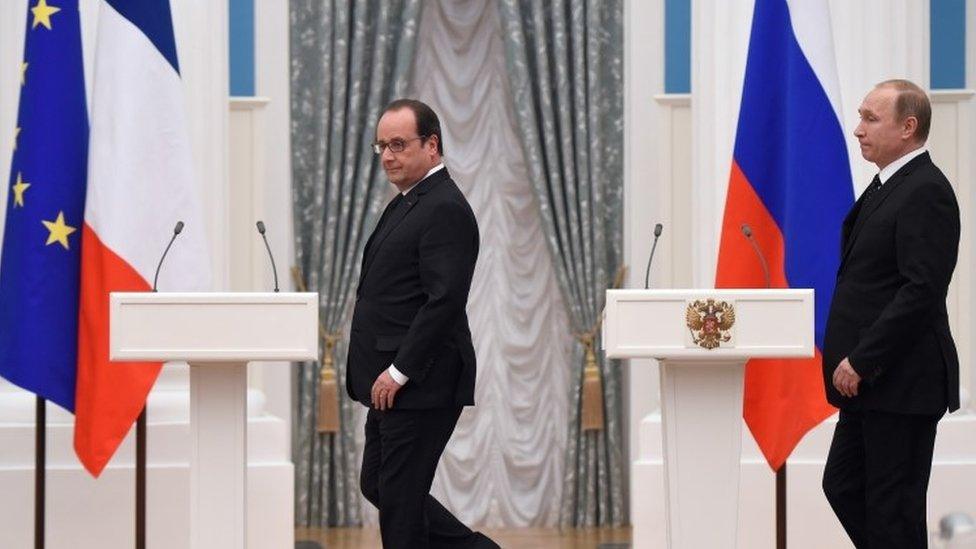
President Hollande and President Putin are at the forefront of efforts to secure a co-ordinated approach in the battle against IS
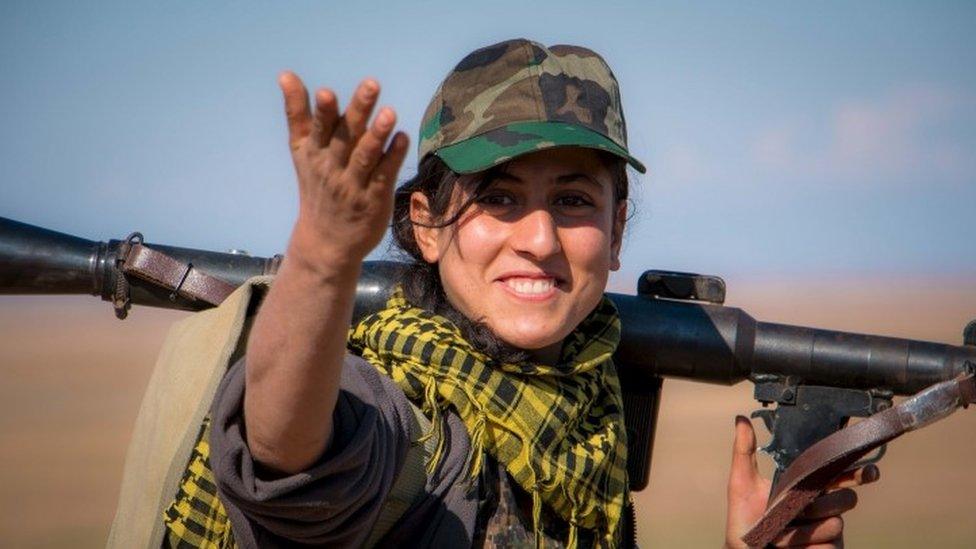
Kurdish forces in Syria have their limits - they cannot push deep into Arab parts of Syria without creating a communal backlash
The most obvious factor driving this process is the series of provocative outrages staged by the self-styled Islamic State (IS), from the slaughter of dozens of British tourists in Tunisia in June, deadly bomb attacks in Ankara and Beirut, the downing of the Russian airliner over Sinai by a bomb smuggled on board to the carnage in Paris on 13 November.
That translates into an energetic push for a settlement in Syria for one obvious reason: Boots on the ground.
While the knee-jerk reaction of France after Paris, and Russia after Sinai, was to send the bombers to inflict visible retribution by striking supposed IS targets from the air, there is universal recognition that such actions cannot defeat IS unless complemented by the advance of capable, cohesive forces on the ground.
And that's the problem. In Syria, only the Kurds in the north - who were fighting IS for more than a year virtually unnoticed by the world - have so far proven reliable ground allies.
Although they are being further cultivated by the Americans, who have sent a few dozen special forces to help them, the Kurds have their limits.
They cannot push deep into Arab parts of Syria without creating a communal backlash.
Isolate Raqqa
While they are being supplemented by some Arab rebel elements and local Christian fighters, and rebranded as the Democratic Syrian Forces, that is largely cosmetic so far - the battle-hardened Kurdish YPG is the main combat force.
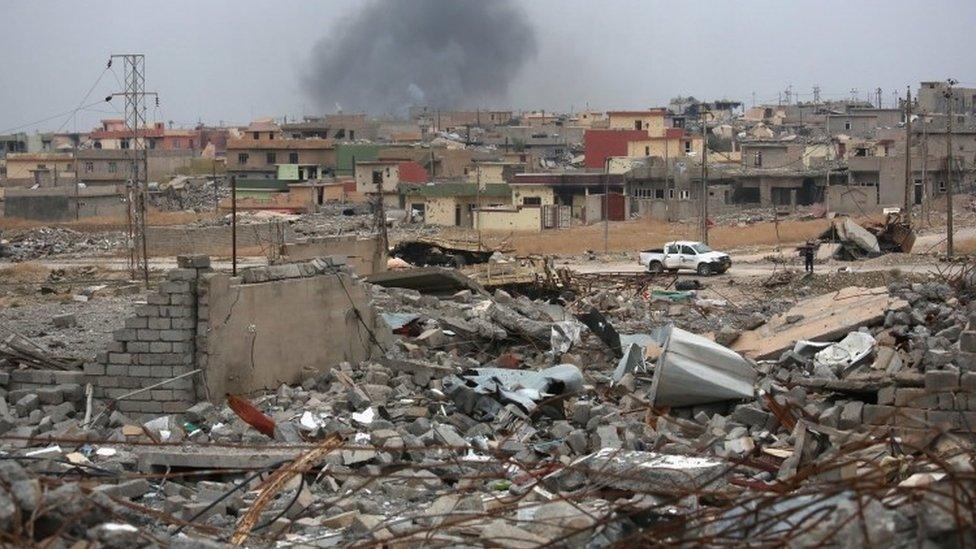
It is questionable whether Syria can ever again function as a centralised state
For the moment, and for that reason, the objective seems to be not to capture the IS "capital" of Raqqa in north-east Syria, but to isolate it.
The other obvious ground partners, the disparate array of more than 1,000 rebel groups, most of them Sunni Islamist in hue and backed by the West and its regional allies the Saudis, Turks and Qataris, have as their raison d'etre to confront and overthrow Bashar al-Assad's government.
Some of them have clashed with IS in turf battles, but that is not their first priority.
American efforts to groom carefully-vetted rebel elements into a 15,000-strong anti-IS force were an expensive fiasco.
But a settlement of the conflict between the Syrian government and rebels would free both sides up to join the Kurds in tackling IS, with Coalition and even Russian air support.
That's the holy grail now being pursued by intense diplomacy, which has already induced all the outside players involved in Syria - including Assad's sustaining allies Russia and Iran - to agree on 14 November in Vienna on a two-year target timeline to elections under a new constitution.
Under this plan, the Syrian government and opposition representatives are supposed to meet by 1 January to start negotiations on a transitional governing body and a nationwide ceasefire.
Which opposition?
The obstacles and pitfalls are huge. There is a yawning gap between the government's position, backed by Russia and Iran, and that of the rebels and their outside backers, led by the US.
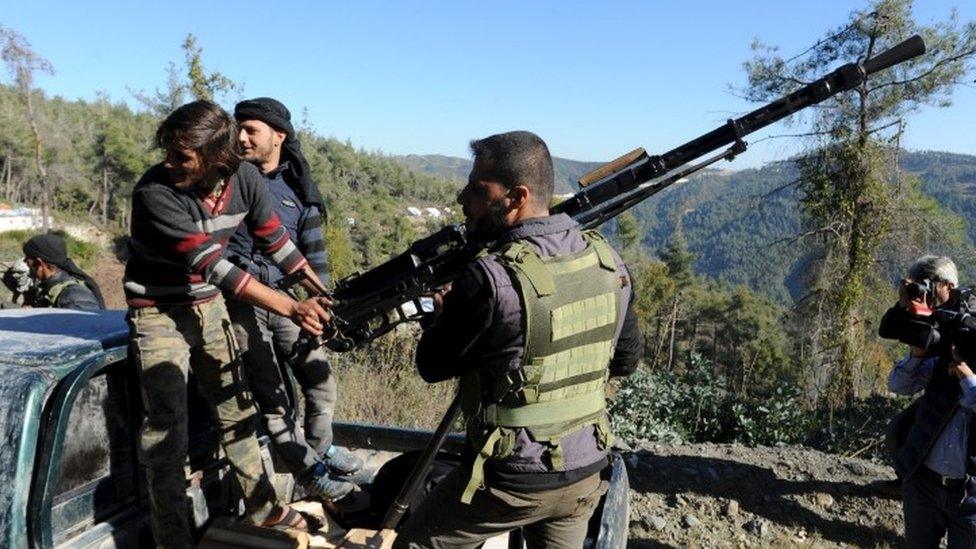
There is a disparate array of more than 1,000 rebel groups on the ground in Syria
Among many practical issues: Who qualifies for a seat on the opposition side? And who are the terrorists?
The Nusra Front - al-Qaeda's Syria affiliate - is mixed up with rebel groups on the ground, but is bracketed by the UN and others with IS. How to unscramble that?
First step is a conference of opposition and rebel groups to be hosted by Saudi Arabia in the next two weeks or so, to resolve some of those issues and compose the team for talks with the regime.
The outside "Vienna" powers are supposed to meet again shortly after that, in Paris, to finalise arrangements for the January talks.
But bigger, less visible issues will have to be resolved before then - above all, the future of President and his inner circle.
The Saudis and other key players, not least the rebels themselves, will need bankable assurances that the president will be out of the picture, if not immediately then by a certain date.
The public position of Russia and Iran remains that that is up to "the Syrian people".
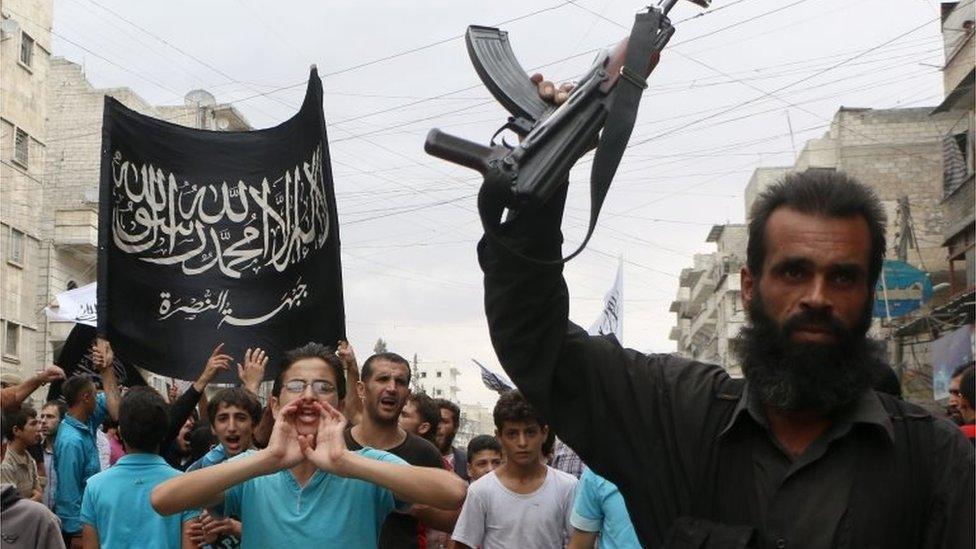
The Nusra Front is mixed up with other rebel groups on the ground in Syria
And beyond that, the question of Syria's future shape. Can it really be pulled together as a centralised unitary state?
"Soft partition", a devolved confederation based on the current areas of control on the ground, might be a more workable "provisional" solution.
That would also allow Russia and Iran to preserve their strategic investment in the government-held regions, rather than lose out to a new central government democratically dominated by the majority Sunnis.
In the meantime, the downing of a Russian warplane by Turkey underlines the conflicting agendas of outside powers ostensibly dedicated to combating IS, an explosively volatile mix.
But once the dust has settled, that, and the loss of its airliner over Sinai, may increase Russia's awareness of the risks and costs involved in deeper embroilment in the Syrian morass if a settlement cannot be found.